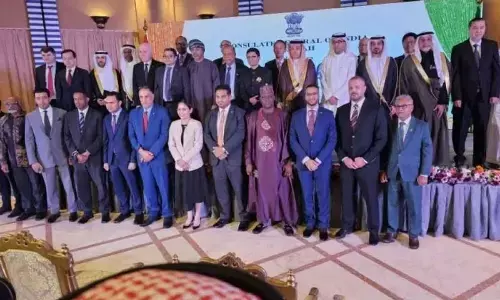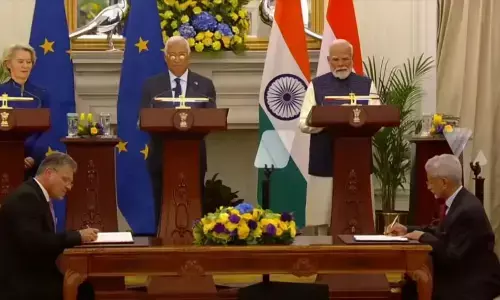metro fare

The Second Apollo Cancer Conclave (ACC) 2015, hosted by Apollo Cancer Hospital, Hyderabad, featured eminent speakers at scientific sessions on Friday at the HICC.
The Second Apollo Cancer Conclave (ACC) 2015, hosted by Apollo Cancer Hospital, Hyderabad, featured eminent speakers at scientific sessions on Friday at the HICC.
Speaking on 'Prophylactic Surgery in Hereditary Cancer Syndrome', Dr Rajendra A Badwe, director, Tata Memorial Hospital, Mumbai, explored the need for surgical removal of organs to prevent cancer of hereditary nature afflicting those organs.
“The topic had gained wide circulation and awareness amongst the public on account of American actress Angelina Jolie undergoing a preventive double mastectomy after she had perceived an 87 per cent risk of developing breast cancer due to a defective BRCA1 gene.
This created a scenario of unnecessary hysteria. Only 1 per cent of breast cancers are due to genetic reasons and 99 per cent are due to other factors. Gene mutation exists in the body but you may not get cancer," Badwe said.
“The risk is 33 times higher in the age of 30 to 39 and 32 times in 40 to 49 years, while it declines to 18 times in the 50 to 59 age bracket. Relative risk reduces with age.
For every one lakh population, we have 100 cancer cases, while USA has 350 cancer cases. Similarly breast cancer cases in India are in the range of 40 to 50 per lakh while in the USA it is 120 per lakh.
However, rural India scores even better with just 50 cancer cases per lakh. The main cause for the gap between urban and rural India is the high levels of obesity in urban India,” he added.
Dr Rajiv Sarin, director, ACTREC, Mumbai, speaking on 'Cancer Genetics - Hereditary Cancers', said that the risk of hereditary cancers is in the range of 5 per cent for breast cancers, 10 per cent for ovary cancers, 20 per cent for colorectal cancers and 20 per cent for childhood cancers.
Families with a history of two or more cancer cases are families with hereditary cancer syndrome and the members of that family are at a risk of getting cancer. Around 3,200 delegates, eminent researchers and 315 top faculty from across the globe are attending the conclave, which will conclude on Sunday.

















